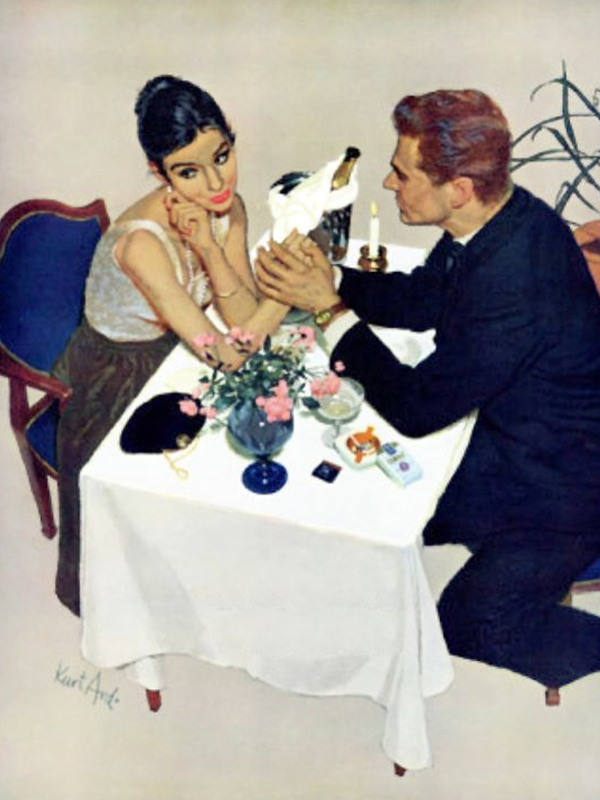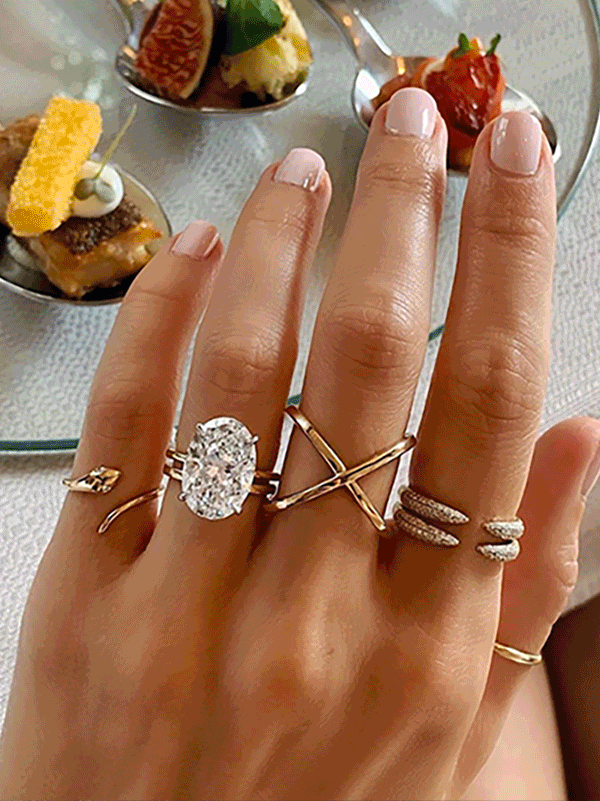
I Spent Thousands Of Dollars To Meet Britney Spears For Exactly 1 Minute
May 19, 2020
Why I Boycotted Dresses In Elementary School
July 21, 2020This Dating Term Explains Why My Dad Left My Mom

Design credit: Kim Duong / 99protagonists
When I was in kindergarten, my father introduced me to the woman for whom he would leave my mother. As I stood in the driveway of our home in Missouri, waving goodbye to my dad and his future second wife as they drove away, I found my grandmother standing next to me in the doorway. She knew then, even before my mother, that he already had somebody else. My parents divorced shortly thereafter and I learned later that my grandmother told my mom: “People always have a back-up.”
A survey of 1,000 people in 2014 found that women were more likely to have a back-up than men. Of these 1,000, half of the married women reportedly already had a Plan B in mind, someone who was ready and waiting in the wings in case their main relationship suddenly soured. It was likely to be an old friend, colleague, or ex-boyfriend who harbored feelings for the woman in question and was willing to step into the role at a moment’s notice. In China, this phenomenon is aptly called having a “spare tire.” But for me, it harkened back to childhood memories of playing on monkey bars: always making sure I had one hand firmly gripped on the next before letting go.
Sometimes I’ll still look her up—my stepmother, Melinda—on LinkedIn. I’ll scroll down to look at the list of her previous jobs, the undergraduate school she had attended where she met my father. I’ll look and see that she had majored in Scientific Writing and I wonder how she ended up in his Fine Arts course back in 1997.
My younger sister was born in April that same year and three months later, my parents were divorced. My mother had won full custody, and the three of us left the state altogether and moved to Pennsylvania. It had been my father’s idea to name us after the month or season in which we were born (her name is April, my name is Summer) and I still don’t know how I feel knowing that he and Melinda have another daughter, born in winter, whose name in Chinese means snow.
I still don't know his entire side of the story, but I know that he carried the guilt of his actions years after the fact. My relationship with my father was sustained over the years through haphazard phone calls and birthday cards and visits for two days a year ever since I was 5. For years, we didn’t speak at all. I felt like I needed to hate him for my mother’s sake, and would defend her every time the topic came up. Mostly, I felt removed from my friends for never needing to buy Father’s Day gifts or having a strong male figure to look up to. I developed thick skin and turned to self-deprecation, making jokes about “daddy issues” and my own failed relationships as a way to seem self-aware.
I had never really processed all the events that transpired more than two decades ago. It wasn’t until last year—one year into the relationship with my ex-boyfriend—when he offhandedly mentioned that he had once convinced his ex-girlfriend to leave her former partner for him. I felt all of the blood rush to my face and suddenly I was screaming. “Both of you were fucking wrong,” I yelled. I felt betrayed.
“You don’t have any place to judge,” he shot back.
He was right. I didn’t, but what did it mean that I was dating someone who had a hand in breaking up a relationship in a way that was so similar to the way my dad broke up our family? That someone who I had once loved shared something in common with the woman my mother had vilified so vehemently when I was growing up?
My relationship with him, obviously, wasn’t meant to be. He would screen my calls, letting them all go to voicemail. He wielded the word “busy” like a four-letter weapon. He refused to hold my sweaty palms. He told me I was too short to be considered conventionally attractive. After the two-year mark, I started to fantasize about a significant other who would buy me peonies on my birthday or tell me I was just fine standing at five-foot-one. And when I finally ended things, it felt like I already had one hand firmly anchored on the next bar.
I still think a lot about my dad and Melinda, and I wonder if it had taken a lot of convincing to get my dad to leave us or if he had been more than willing to leave on his own. Some of my earliest memories revolved around watching my parents yell at each other through a crevice in the doorway, crouched against the ground, hands over my ears. Maybe things had turned out for the best. As shitty as it was, perhaps he was deeply unhappy all that time and was just waiting for the right moment to exit.
And after my breakup, I began to understand, just a little bit, why my dad left to be with someone he was happier with. More than anything, I learned that my father isn’t perfect; he is, simply, human. That he made a mistake, that my mother probably also made her own fair share of mistakes. He confessed to me, years later, that he hadn’t felt acknowledged or appreciated in his marriage with my mother. It didn’t justify his actions, but I told him I no longer held a grudge. I had, for the most part, forgiven him, but I don’t think he ever truly forgave himself.
I’m calling it “Monkey Bars.”






